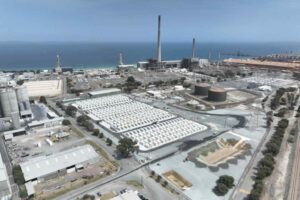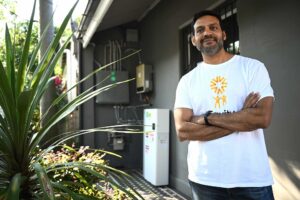Ten years ago, gas was sold as a clean, cheap fuel. One that doesn’t pollute nearly as much as coal. The perfect ‘transition fuel’ to rely on until renewables could somehow gain market share from the heavily subsidized coal industry.
 Ten years on, driven significantly by a new understanding of
Ten years on, driven significantly by a new understanding of
a) the greenhouse damage caused by even small amounts of leaking gas,
b) how little headroom we have to emit further global warming and
c) the increased emissions from unconventional gas extraction pursued by industry,
gas can no longer be considered ‘clean’. Industry moves to export gas will open the domestic market to price parity with the international market, significantly increasing costs.
To use gas as a fuel requires exploration, extraction, processing and distribution. Each of these steps has an environmental impact. Exploration involves drilling, often in sensitive areas. Extraction of gas by fracking can, and has lead to local environmental impacts, such as gas leaks in local groundwater supplies. AGL suspended activities in Gloucester earlier this year after banned chemicals turned up in water samples from the area.
Gas extraction and transportation leads to fugitive emissions. Unconventional gas, such as coal seam gas, leaks far more than conventional gas due the need for more wellheads to access the gas, and difficulty in regulating a number of sometimes difficult to access wellheads. Along with the environmental impacts at the site, extraction of unconventional gas also impacts more heavily on the climate.
Gas is mostly comprised of methane, a greenhouse gas 27 times more potent than carbon dioxide. When its short life is taken into account (methane does not last long time in the atmosphere), with a 20 year Global Warming Potential methane’s potency increases to 84 times that of carbon dioxide. Using the latest numbers for the greenhouse warming impact of methane, we can say that the entire gas system, end-to-end, only needs to leak 3.4% of the gas for the net warming impact to be twice the impact of no leakage at all. Estimates put the leakage as higher than that.
Getting off the gas
The main household uses for gas are cooking, hot water and space heating. The past couple of years have seen the introduction of new electrical cooking and heating appliances that are highly efficient and offer the same or better functionality as gas appliances. Induction cooktops offer the same or better responsiveness of gas.
The retail per-MJ price of gas about 1/3 the per-MJ price of peak electricity, however good current electric systems for heating are easily five to ten times more efficient than a legacy gas ducted system. So, contrary to the myth of cheap gas, the cost of delivered heat to the resident can be much less with electricity. To derive an equivalent of 10MJ of heat output, BZE estimates losses as high as 10MJ from the flue, and 10MJ from the ducts. Basically, you’re paying for an extra two ducted heating systems every time you turn on the one you have.
In the same way the climate movement has been calling for no new coal for many years, it’s time we called for no new gas. A gradual phase out of gas appliances would be the first step in the sun setting permanently on Australia’s gas fields.
An effective policy response from government would include:
1. Information on the costs, efficiency and emissions associated with using gas vs electrical cooking and heating appliances
2. Incentives for households to switch from gas appliances used for heating and cooking. Subsidies can be provided for purchases and installation of induction cookstoves and space conditioners, the level of the subsidy increasing with higher efficiency appliances.
3. Information on the costs and environmental impacts of extracting, producing and distributing gas.
5. Assistance to electricity and gas retailers to move to providing renewable energy.
6. Investment in companies improving household battery storage technology.
When we stop cooking with gas, we stop cooking the climate.
Dr Stephen Bygrave is CEO of Beyond Zero Emissions and Adjunct Professor at Institute for Environmental Studies, UNSW








